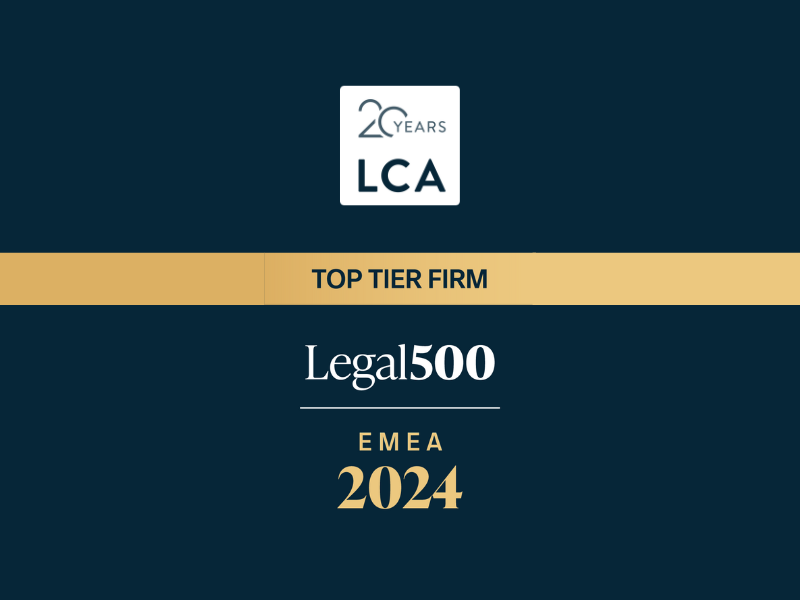On 16 December 2022, the EU Directive 2022/2464 (“CSRD Directive”) on corporate sustainability reporting (CSRD) has been published in the EU Official Journal. The publication of the CSRD Directive follows the final approval by the EU Council (on 28 November 2022) of the directive proposal as submitted by the European Commission on 21 April 2021 as part of the European Green Deal and the Commission’s Sustainable Finance Action Plan.
The CSRD pursues three different objectives:
- addressing shortcomings in the existing legislation in connection with non-financial reporting (NFRD – non-financial reporting directive) as set out in Directive 2014/95/EU, by requiring certain types of companies to disclose, based on the “double materiality” principle, information on how their business model affects sustainability and how external sustainability factors (such as climate change and human rights) influence their activities;
- closing the gaps in existing sustainability information standards, curbing greenwashing;
- improving sustainability reporting in order to better contribute to the transition towards a fully sustainable and inclusive economic and financial system, in line with the European Green Deal and the UN Sustainable Development Goals (SDGs).
More specifically and in practical terms, the CSRD Directive, to be implemented by member states within 18 months from the date of publication in the EU Official Journal, determines which companies will be subject to sustainability reporting obligations; obligations that are designed to enable an understanding of how sustainable the company is and to provide the basis for dialogue with various stakeholders.
The CSRD obligations to publish corporate sustainability data apply to:
- large public interest-entities (PIEs) with more than 500 employees;
- large companies with more than 250 employees and a turnover of EUR 40 million;
- to all listed companies except for micro-undertakings and
- non-EU companies generating a net turnover of more than EUR 150 million within the EU for two successive financial years, as well as non-EU companies with a subsidiary that qualifies as a listed SME and/or branch with a net turnover of more than EUR 40 million for the previous financial year.
Compared to Directive 2014/95/EU, the main innovations of the CSRD are:
- the extension of the scope to all companies listed on regulated markets including listed SMEs but with the exception of listed micro-undertakings;
- the standardization of sustainability reporting requirements and the introduction of mandatory assurance;
- the inclusion of information in the management report;
- a reporting format compliant with the Single European Electronic Format Regulation.
The management report shall indicate:
- a brief description of the undertaking’s business model and strategy, including:
(i) the resilience of the undertaking’s business model and strategy in relation to risks related to sustainability matters;
(ii) the opportunities for the undertaking related to sustainability matters;
(iii) the plans of the undertaking, including implementing actions and related financial and investment plans, to ensure that its business model and strategy are compatible with the transition to a sustainable economy and with the limiting of global warming to 1,5 °C in line with the Paris Agreement under the United Nations Framework Convention on Climate Change
(iv) how the undertaking’s business model and strategy take account of the interests of the undertaking’s stakeholders and of the impacts of the undertaking on sustainability matters;
(v) how the undertaking’s strategy has been implemented with regard to sustainability matters; - a description of the time-bound targets related to sustainability matters set by the undertaking, and a description of the progress the undertaking has made towards achieving those targets;
- a description of the role of the administrative, management and supervisory bodies with regard to sustainability matters, and of their expertise and skills in relation to fulfilling that role or the access such bodies have to such expertise and skills;
- a description of the undertaking’s policies in relation to sustainability matters;
- information about the existence of incentive schemes linked to sustainability matters which are offered to members of the administrative, management and supervisory bodies;
- a description of:
(i) the due diligence process implemented by the undertaking with regard to sustainability matters, and, where applicable, in line with Union requirements on undertakings to conduct a due diligence process;
(ii) the principal actual or potential adverse impacts connected with the undertaking’s own operations and with its value chain, including its products and services, its business relationships and its supply chain, actions taken to identify and monitor those impacts, and other adverse impacts which the undertaking is required to identify pursuant to other Union requirements on undertakings to conduct a due diligence process;
(iii) any actions taken by the undertaking to prevent, mitigate, remediate or bring an end to actual or potential adverse impacts, and the result of such actions; - a description of the principal risks to the undertaking related to sustainability matters, including a description of the undertaking’s principal dependencies on those matters, and how the undertaking manages those risks;
- indicators relevant to the disclosures referred to in points (a) to (g).
The obligation to draw up and publish a sustainability report will come into force according to the following steps:
- as of the financial year 1st January 2024, the companies currently drafting a non-financial statement – contained in the management report accompanying the annual financial statements – in accordance with the NFRD will have to comply with the CSRD sustainability reporting obligation;
- in the case of PIEs with more than 500 employees, the first CSRD sustainability reporting will have to be public from the beginning of 2025;
- as of the financial year 1 January 2025, it will be the large companies’ round to comply with the CSRD sustainability reporting obligation;
- as of the financial year 1 January 2026, the CSRD sustainability report obligation will have to be fulfilled by listed SMEs;
- the financial year starting on 1st January 2028 will be the reference year for third countries companies.
Compared to the current provisions, the CSRD focuses on a new set of information by disclosing possible negative effects on the company value chain. In fact, the CSRD points out and broadens the task of reporting across the supply chain, no longer limited to the risks connected to the general criteria included in the “Statement on Non-Financial Information”, but extended to the various aspects that feature the company economic valorisation process, from business model to strategies, from targets to governance, from due diligence activities to “sustainability matters”, to supply chain negative effects, even the potential ones, and the consequent mitigation actions.
The approval of the CSRD Directive highlights how sustainability (and let’s add, integrated) reporting will be the future of corporate reporting, which the EU has identified as a driving factor in the way towards sustainable economy. Also due to the growing of greenwashing, companies are under increasing pressure to demonstrate their commitment to creating value that is sustainable in the long term and that includes people’s ever-increasing expectation and attention to sustainability, taken in the broadest sense of the word. In this perspective, the provisions of the CSRD Directive will increase the degree of corporate responsibility by making the transition towards sustainable economy easier.
The topic is hot, and doubts about the scope and timing of CSRD Directive implementation are arising within companies. More on the implementation of this long-awaited directive will follow.
DOWNLOAD PDF


